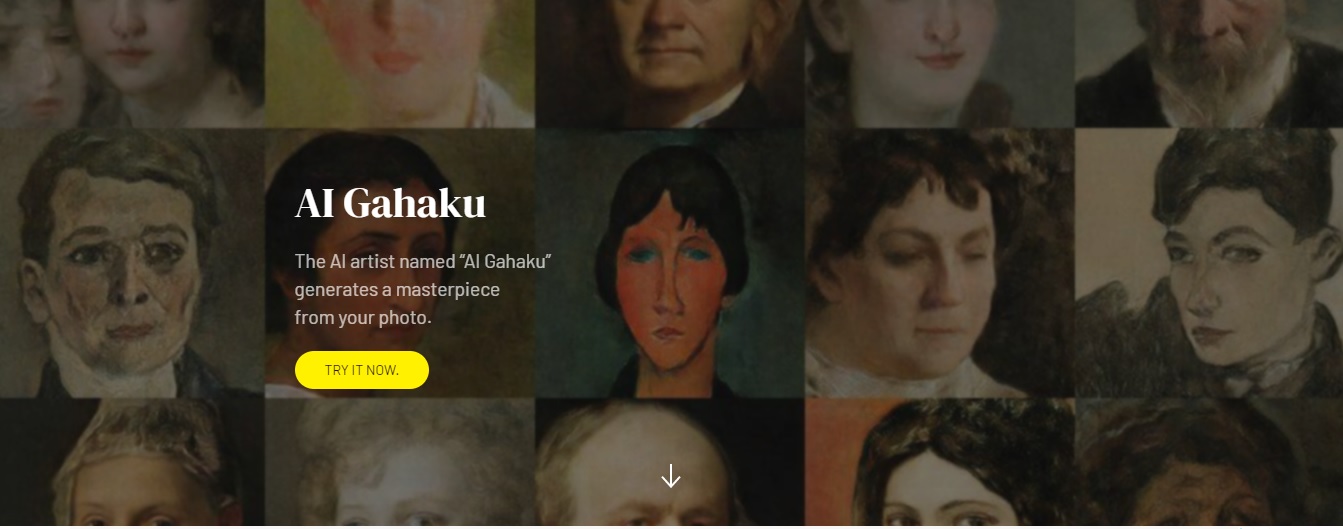AI Gahaku: Turns Your Photo into Renaissance Painting
Are you one of the internet users who try AI (Artificial Intelligence) Art applications to turn your photo into a Renaissance Painting? During the quarantine period due to the COVID-19 pandemic, this AI application is getting more popular. People maybe try it amid their boredom and free time throughout the isolation.
A full-stack developer based in Japan–named Sato, creates AI Gahaku. AI Gahaku can generate a Renaissance painting from your photos. You simply need to visit the AI Gahaku website, select photos from your library, and upload it. The ‘AI artist’ will process it and you can choose the painting style that you want. And…voilà! you have a self-portrait painting masterpiece!
In an interview, Sato says that he creates the AI Gahaku because he likes to make people happy with his programming hobby. Sato does not work for AI company, he sees programming only as a hobby. He learns programming by himself–studying programming languages and reading a lot of research papers about AI method.
AI Gahaku is fun and interesting to use. This app is very entertaining in the middle of leisure time.
Can AI artists truly create Art?
Before AI Gahaku, there have been several AI artists. For example, NAO robots danced for eight minutes at Shanghai’s 2010 World Expo. In 2013, an AI artist called The Painting Fool painted a composite image based on keywords and moods of the newspaper article. In 2017, an AI musician along with Taryn Southern produced a pop-music album. In 2018, an AI artist named Obvious generated its own painting based on an algorithm of 15.000 images from different periods. There are many more examples and still counting, from AI co-choreographers, co-beatboxers to co-visual artists.
Some questions come to my mind: Can AI Artists, like AI Gahaku and others, truly create Art? Is AI Artist more creative than humans? What is creativity? Does creativity belong to humans alone? Can we say AI has creativity? and what is art? (see also the unanswered question about AI)
In my opinion, AI artists have shifted humans as the center of creativity. Although the AI’s creativity is not as complex as human, it cannot be said that AI has no creativity. Roger C. Schank–An American artificial intelligence theorist, defines creativity as the ability to find a new way, to adapt to a new environment, and to learn from experiences. AI has creativity in certain degree.
However, can AI be aware that they have creativity? Do they know that ‘they know’? Today, AI has not reached this awareness yet, but everything can happen in the future, especially in the digital revolution era.
According to Ahmed Elgammal–a professor at the Department of Computer Science, Rutgers University, humans can teach AI creativity. Creativity is related to originality and influence. Creative things should be novel and influential. Humans can ‘teach creativity’ to AI machines by giving a lot of images that stretch across humans history. Based on similarities and differences among these images, the machine emulates a novel image. For Elgammal, AI can even expand human creativity, as AI has ability to explore wider world than humans.
Is AI’s artwork called ‘art’? This question is problematic because there is difficulty in defining art. The definition of art shifts from time to time. I follow an explanation of art by Christoper Janaway–Professor of Philosophy at the University of Southampton, in the book The Oxford Companion to Philosophy. In the ancient era, like ancient Greek, art is mimesis or the reproduction of the world. In modern thought (17th-early 20th century), reproduction is no longer a fundamental feature of art. Art objects in the modern era should have beauty. Art is created by genius artists.
Avant-Garde art movement (20th century) has changed how people define art. After this movement, art is considered an open-ended concept rather than a fixed one. The definition of art depends on what society called as art. In the post-modern era, the definition of art is no longer a concern. The impact of artwork on society is more interesting than the definition of art.
Probably I have more questions than answers. The painting of AI Gahaku and other AI artists can be called art, depending on society’s consensus about art. The progress of AI opens various possibilities, including on the tangled web of art, creativity, human, and society.
So, do you think AI artists can totally take the place of artists in the future?

